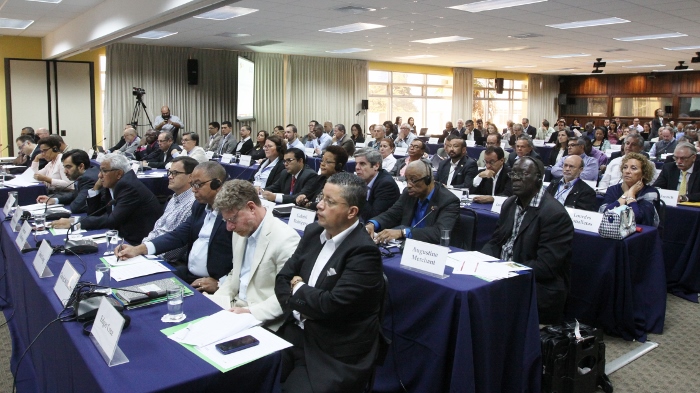Called together by the Director General of IICA, representatives of the institute in its 34 member countries attended the Fourth Institutional Management Meeting in Costa Rica to analyze the Institute’s results over the past five years.

San José. The large technical team of the Inter-American Institute for Cooperation on Agriculture (IICA) gathered in Costa Rica to review the results achieved by the Institute over the past five years, as well as the scope of the new cooperation model, underway since 2014, which seeks to contribute to the development of the agricultural sector in the Americas.
The meeting of representatives of the 34 member states of IICA, as well as project leaders, specialists and other authorities, was convened by the Director General of the Institute, Víctor M. Villalobos, to define concrete proposals that will allow the Institute to continue achieving results for the benefit of agriculture in each country.
“This meeting allows us to analyze our roadmap, the 2014-2018 Medium-term Plan (MTP). It is our responsibility to discuss the MTP and provide recommendations and suggestions on ways to improve our actions,” stated Villalobos.
Over the next two years, the Institute will focus on six priorities for improving the impact of the cooperation model on the countries as well as the Institute’s operation. Following five days of analysis and discussion during the meeting, participants agreed on the following objectives:
- To perfect the cooperation instruments
- To improve the collection of external resources
- To strengthen the communication strategy
- To improve links to strategic partners
- To simplify systems and processes
- To strengthen the capacity for prospective vision: technical leadership
Villalobos stated that because the Representatives were familiar with the needs of the countries in which they were stationed, the meeting in Costa Rica afforded the opportunity to listen to the voice of IICA in a comprehensive manner, in the interest of becoming more purposeful and efficient.
“Engaging in dialogue is the first step toward making concrete proposals and solving problems. Becoming familiar with other points of view improves comprehension and contributes to the achievement of agreements. It is important to focus on any ideas, proposals and commitments that will contribute to fulfilling our commitments to the countries,” stated Villalobos.
More information:











